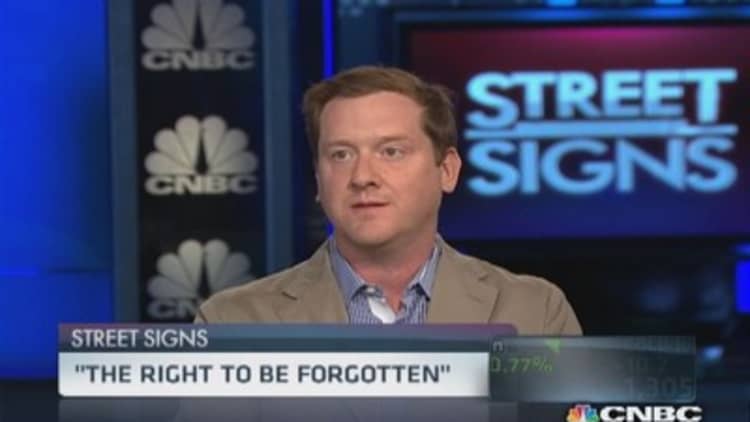Europe's "right to be forgotten" ruling is "draconian" and "frightening", the inventor of the World Wide Web said on Wednesday, underlining the fear that the judgment could undermine the open internet.
The "right to be forgotten" allows users to ask search engines such as Google to remove links that contain information about them. The controversial ruling by the European Union's (EU) top court, the European Court of Justice has been met with outrage by some politicians and internet freedom advocates.
Tim Berners-Lee, the man who invented the World Wide Web in 1989 while working at the Swiss particle laboratory CERN, said the world has a "problem with data disappearing" and the right to be forgotten ruling would make it worse.
"The idea that information which is true should be expunged for the public record is frightening," Berners-Lee told journalists at the IP Expo Europe in London.
The inventor said that the rule is "draconian" when people request information that is true about them to be taken down, adding that soon, many news articles which are factual could be wiped off the web.
Read MoreMicrosoft taking'right to be forgotten' requests
Google has received 140,000 individual requests for data to be removed which accounts for about half a million links.
Berners-Lee added that an open internet had allowed him to create the World Wide Web and "net neutrality" must be maintained to help future inventions. Net neutrality means Internet service providers should treat traffic equally without blocking or discriminating against competitors' websites or services.
"We have to keep fighting for net neutrality and keeping the internet as a platform without an attitude, a platform without a center," he said.
'Legal ownership' of data

Concerns over data privacy have been heightened in Europe since former National Security Agency contractor Edward Snowden revealed information about surveillance techniques used out by U.S. and U.K. spy agencies.
U.S. companies such as Yahoo and Facebook have been quick to try and reassure consumers that their data is safe in an attempt to win back the trust of users.
Berners-Lee dubbed Big Data "the future" but advocated a system where people owned their data by law.
"I want to build a world where I'm in control of my data…maybe I'll sell it to you (a company)…but more importantly I will have control of access and legal ownership to all the data about me," he said during his keynote speech.
Read MoreGoogle removesresults under 'right to be forgotten'
Data to save lives?
Big Data has become a hot topic for social media and marketing companies who can use the information to present targeted advertisements to users based on previous purchases and websites visited.
But adverting is "not the whole big data world", Berners-Lee said, suggesting that sharing some data such as health history with certain people like doctors could help save lives in emergencies.
"Data about me will help take care of me if I'm in a car accident…some of it will be personal to me…but if I'm in a car accident and you're the emergency team...I want any doctor to access that data," he said.


